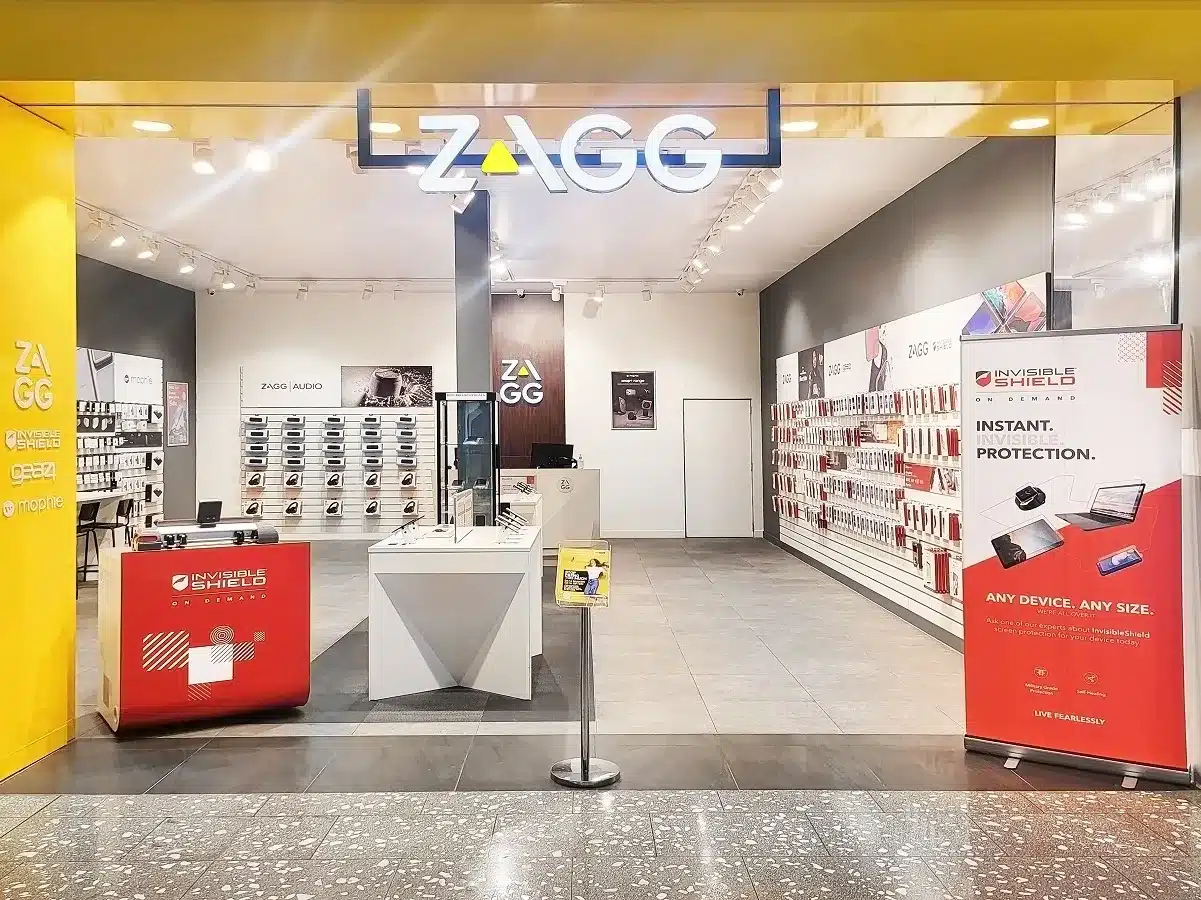Zagg Franchise FDD, Profits & Costs (2025)

ZAGG, established in 2005 by innovator Phillip Chipping in Utah, began with the creation of the InvisibleShield—a protective film inspired by military-grade materials designed to safeguard devices from scratches and damage.
Headquartered in Midvale, Utah, ZAGG has evolved into a global leader in mobile accessories, offering products such as screen protectors, cases, power management solutions, mobile keyboards, and personal audio devices.
In 2012, ZAGG launched its franchising program, expanding its retail presence through kiosks and in-line stores. The franchise model is designed for simplicity and efficiency, with relatively low startup costs compared to other franchises.
ZAGG differentiates itself in the competitive tech accessory market through continuous innovation and a commitment to quality. The company’s flagship product, InvisibleShield, has become the #1 trusted industry standard in screen protection, with over 350 million units sold worldwide.
Initial Investment
How much does it cost to start a Zagg franchise? It costs on average between $49,000 – $109,000 to start a Zagg franchised store.
This includes costs for retail setup, equipment, inventory, and initial operating expenses. The exact amount varies based on factors such as the store format, location, and whether the franchisee chooses to lease or purchase the retail space.
| Type of Expenditure | Amount |
|---|---|
| Initial franchise fee | $5,000 to $15,000 |
| Initial equipment & marketing costs | $1,000 |
| POS system | $2,000 to $3,000 |
| Opening inventory | $10,000 to $30,000 |
| Travel and living expenses while training | None |
| Real estate costs | $10,000 to $30,000 |
| Miscellaneous opening costs | $500 to $5,000 |
| Additional funds (3 months) | $20,500 to $25,000 |
| Total | $49,000 to $109,000 |
Average Revenue (AUV)
How much revenue can you make with a Zagg franchise? A Zagg franchised location makes on average $296,000 in revenue (AUV) per year.
Download the Franchise Disclosure Document
Frequently Asked Questions
How many Zagg locations are there?
As of the latest available data, ZAGG operates 99 retail locations across the United States, Canada, and Puerto Rico.
What is the total investment required to open a Zagg franchise?
The total investment required to open a Zagg franchise ranges from $49,000 to $109,000.
What are the ongoing fees for a Zagg franchise?
ZAGG franchisees pay a royalty fee of 5% of their sales, which covers ongoing support and access to the brand’s business model. They also contribute a 1% marketing fee to support national and regional advertising efforts that help drive customer traffic to their locations.
What are the financial requirements to become a Zagg franchisee?
To become a ZAGG franchisee, candidates are typically required to have liquid capital ranging from $25,000 to $50,000 and a minimum net worth of $50,000. These financial prerequisites ensure that franchisees are adequately prepared to manage the initial investment and operational costs associated with establishing a ZAGG retail location.
How much can a Zagg franchise owner expect to earn?
The average gross sales for a Zagg franchise are approximately $0.3 million per location. Assuming a 15% operating profit margin, $0.3 million yearly revenue can result in $45,000 EBITDA annually.
Who owns Zagg?
ZAGG franchise is owned by Evercel, Inc., which led a buyer group to acquire ZAGG Inc. in a transaction announced in December 2020.
Disclaimer
Disclaimer: This content has been made for informational and educational purposes only. We do not make any representation or warranties with respect to the accuracy, applicability, fitness, or completeness of the information presented in the article. You should not construe any such information or other material as legal, tax, investment, financial, or other professional advice. Nothing contained in this article constitutes a solicitation, recommendation, endorsement, advertisement, or offer to buy or sell any franchises, securities, or other financial instruments in this or in any other jurisdiction in which such solicitation or offer would be unlawful under the franchise and/or securities laws of such jurisdiction.
All content in this article is information of a general nature and does not address the detailed circumstances of any particular individual or entity. Nothing in the article constitutes professional and/or financial and/or legal advice, nor does any information in the article constitute a comprehensive or complete statement of the matters discussed or the law relating thereto. You alone assume the sole responsibility of evaluating the merits and risks associated with the use of any information or other content in this article before making any decisions based on such information or other content.




